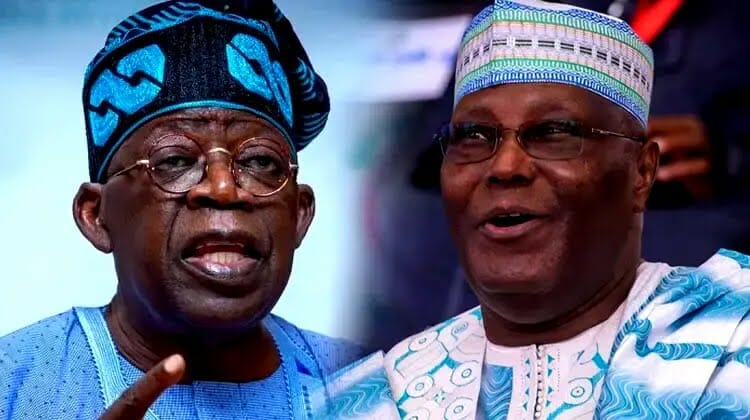The Presidential Election Petition Court (PEPC) has informed Wole Olanipekun (SAN), the lead counsel to President-elect Bola Tinubu, that he is citing an old law in opposition to the request made by the Peoples Democratic Party (PDP) presidential candidate, Alhaji Abubakar Atiku.
On Thursday, the court’s chairman, Justice Haruna Simon Tsammani, drew Olanipekun’s attention to a section of the Code of Conduct for Judicial Officers that was incorrectly cited to justify Tinubu’s opposition to live coverage of proceedings in Atiku‘s petition.
He told Tinubu’s counsel that he was citing an old law to justify his opposition to Atiku’s request for live coverage of court proceedings.
WITHIN NIGERIA reports that during the hearing on Thursday, Tinubu, the APC, and INEC all separately objected to Atiku’s request.
Chief Chris Uche, SAN, Atiku’s lead counsel, had cited the petition’s monumental importance nationally and internationally to support his demand for a live telecast of the proceedings.
However, in an attempt to justify his staunch opposition, Olanipekun cited paragraph 4.6 of the Code of Conduct for Judicial Officers, which he claimed prohibited judicial officers from broadcasting or televising proceedings during a court session.
Following Chris Uche’s submissions that there was no law or statute prohibiting live telecast of court proceedings at the time, he cited the disputed law.
As Olanipekun was about to read the section of the law, Justice Tsammani interrupted and informed him that he was citing the wrong law.
Justice Tsammani informed Olanipekun that the section he was citing to support his arguments against live coverage had been amended and the section in question had been removed entirely.
The court’s chairman maintained that the portion claimed by Olanipekun was no longer included in the new Code of Conduct for Judicial Officers. While arguing for a live broadcast of Atiku’s petition, Uche drew the court’s attention to the Justice Oputa Panel of Inquiry, which was telecast live and lauded across the country.
According to the senior lawyer, if the petition is broadcast live, none of the respondents will be prejudiced.
He specifically stated that there was no single law or statute prohibiting the live broadcast of court proceedings and that the fact that it had never been done before should not be interpreted as implying that it cannot be done this time.
Meanwhile, the court’s chairman, Justice Haruna Simon Tsammani, has postponed ruling on the matter until a date to be communicated to the parties.
